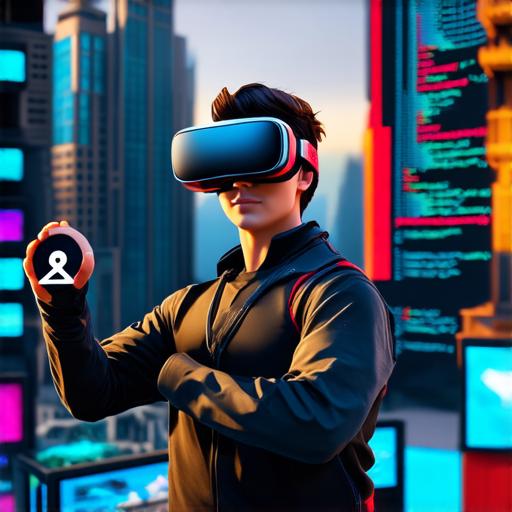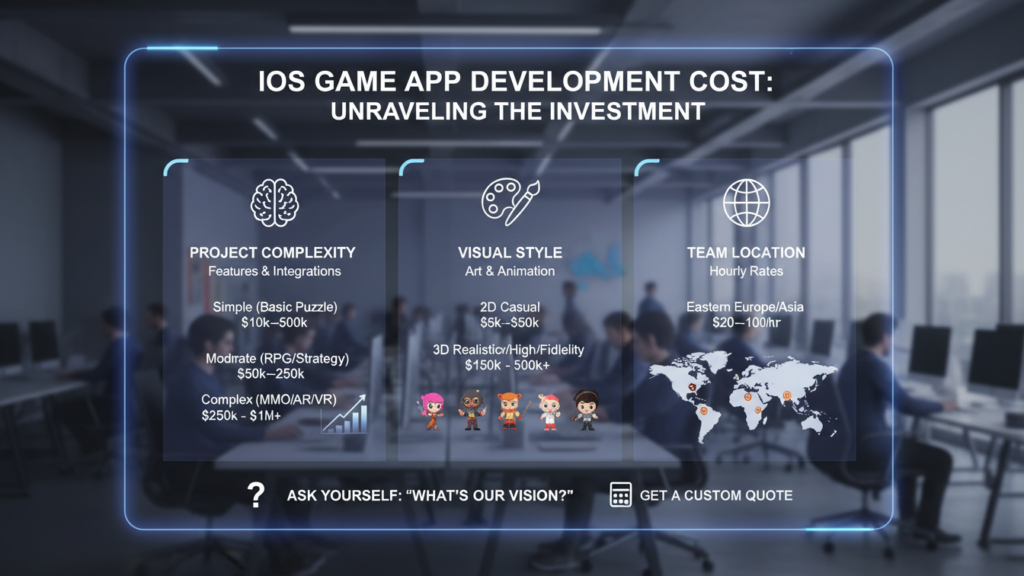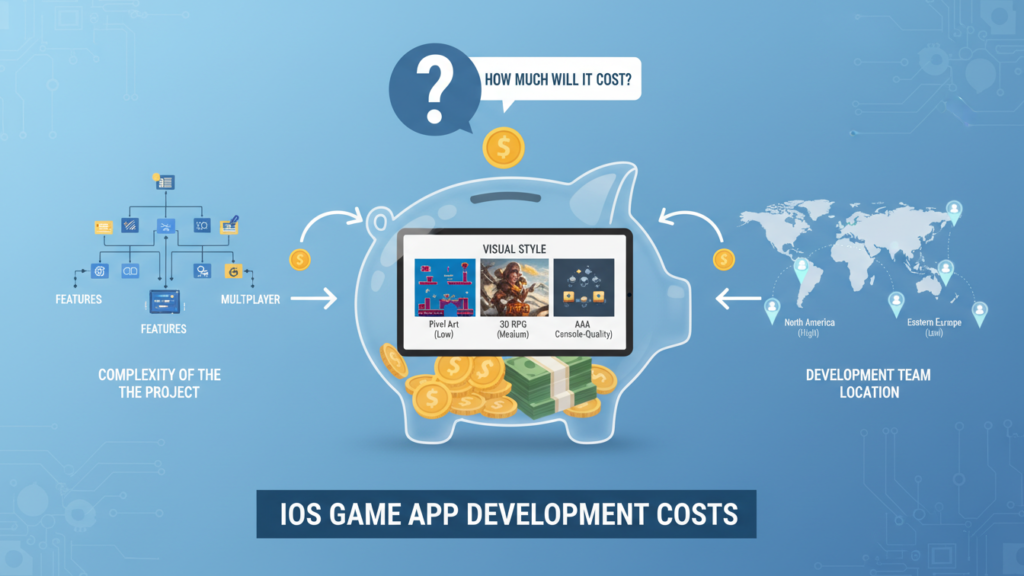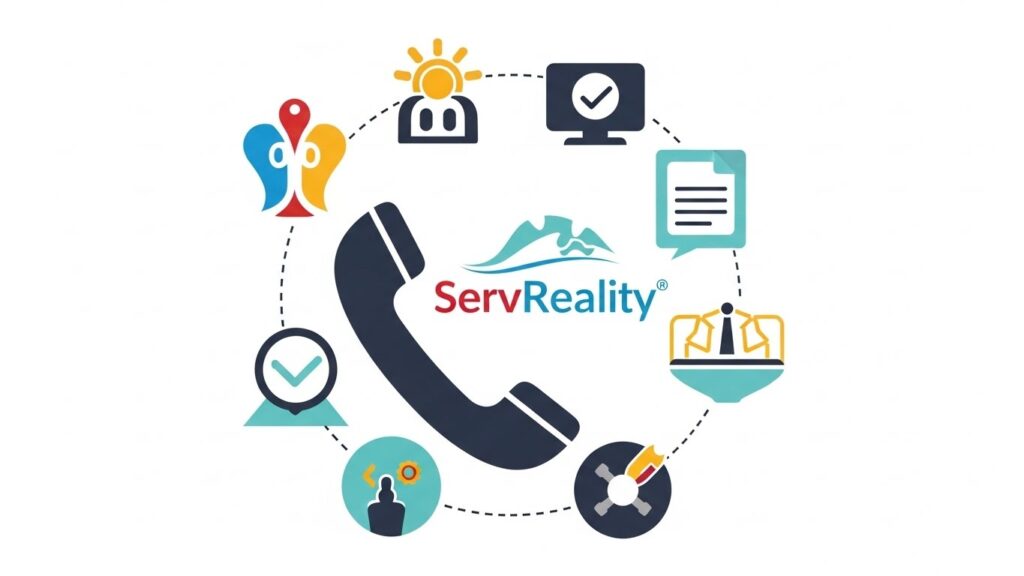Benefits of Virtual Reality App Development
Virtual reality technology provides developers with a unique opportunity to create immersive and interactive experiences for users. One of the main benefits of VR app development is that it allows users to experience content in a more realistic way. This can be especially useful in industries like gaming, where VR apps allow players to fully immerse themselves in a game world.
Another benefit of VR app development is that it can increase engagement and retention rates. By providing users with a more interactive and immersive experience, VR apps can keep users coming back for more. This is especially important for apps in industries like education, where VR apps can make learning more engaging and memorable.
Virtual reality technology also provides developers with the ability to create experiences that were previously impossible or too costly to develop. For example, VR apps can be used to simulate complex machinery or dangerous environments, allowing users to learn and practice skills in a safe and controlled environment.
Challenges of Virtual Reality App Development
Despite its many benefits, virtual reality app development also presents several challenges. One of the main challenges is the cost of VR technology. High-quality VR hardware can be expensive, and not all users may have access to it. This can limit the potential reach of VR apps, especially in industries where VR technology is still relatively new.

Another challenge of VR app development is the complexity of creating immersive experiences. Developing VR apps requires a deep understanding of both programming and design, as well as expertise in 3D modeling and animation. This can make VR app development more time-consuming and expensive than traditional app development.
Finally, there are also concerns about the potential negative effects of VR technology on users’ health. Prolonged use of VR apps can lead to motion sickness and other physical symptoms, and there are also concerns about the impact of VR on mental health. Developers must carefully consider these issues and take steps to mitigate them in their apps.
Future Trends in Virtual Reality App Development
Despite the challenges, virtual reality technology is expected to continue growing in popularity in the coming years. There are several trends that are likely to shape the future of VR app development, including:
- Wireless VR headsets: As wireless technology advances, it’s likely that we will see more wireless VR headsets on the market. This will make VR experiences more convenient and accessible, as users won’t need to be tethered to a computer or other device.
- Haptic feedback: Haptic feedback technology allows users to feel sensations in virtual reality, such as the sensation of touch or vibration. As this technology continues to improve, we can expect to see more immersive and realistic VR experiences.
- Augmented reality integration: Augmented reality (AR) technology overlays digital content onto the real world, allowing users to interact with both physical and digital objects. AR is already being used in some VR apps, but we can expect to see more integration of AR and VR technology in the future.
- Artificial intelligence: AI is becoming increasingly important in virtual reality app development, as it allows developers to create more personalized and adaptive experiences for users. For example, AI-powered chatbots can help users navigate VR environments, while machine learning algorithms can analyze user behavior and adjust the experience accordingly.
- Cloud-based VR: Cloud-based VR allows users to access VR experiences over the internet, without needing to download or install any software. This will make VR more accessible to a wider audience, as users won’t need to invest in expensive hardware.
Case Studies
One of the best ways to understand the potential of virtual reality app development is to look at real-world examples. Here are a few case studies that illustrate the benefits and challenges of VR app development:
- Virtual try-on apps: Virtual reality try-on apps, such as those used by fashion retailers like Sephora, allow users to try on clothes in a virtual reality environment. These apps have been shown to increase sales and reduce the number of returns, as users can see how clothes will look on them before making a purchase.
- Virtual medical training: Virtual reality technology is being used to train medical professionals in a variety of fields, from surgery to emergency medicine. For example, the American Heart Association has developed a VR app that allows surgeons to practice complex cardiac procedures in a virtual environment.
- Virtual escape rooms: Virtual reality escape rooms are becoming increasingly popular, as they provide a fun and interactive way for users to solve puzzles and work together as a team. These apps have been shown to be effective in improving problem-solving skills and teamwork.
- Virtual product visualization: Virtual reality technology is being used by manufacturers and designers to visualize products in 3D, allowing them to make changes and improvements before going into production. This can save time and money, as well as reduce the need for physical prototypes.
Summary
Virtual reality app development presents both opportunities and challenges for developers. While VR technology provides a unique opportunity to create immersive and interactive experiences for users, it also requires a deep understanding of programming and design, as well as expertise in 3D modeling and animation. Despite these challenges, virtual reality technology is expected to continue growing in popularity in the coming years, with trends such as wireless VR headsets, haptic feedback, and AI integration shaping the future of VR app development. By understanding the benefits and challenges of VR app development, developers can create more engaging and effective virtual reality experiences for users.



